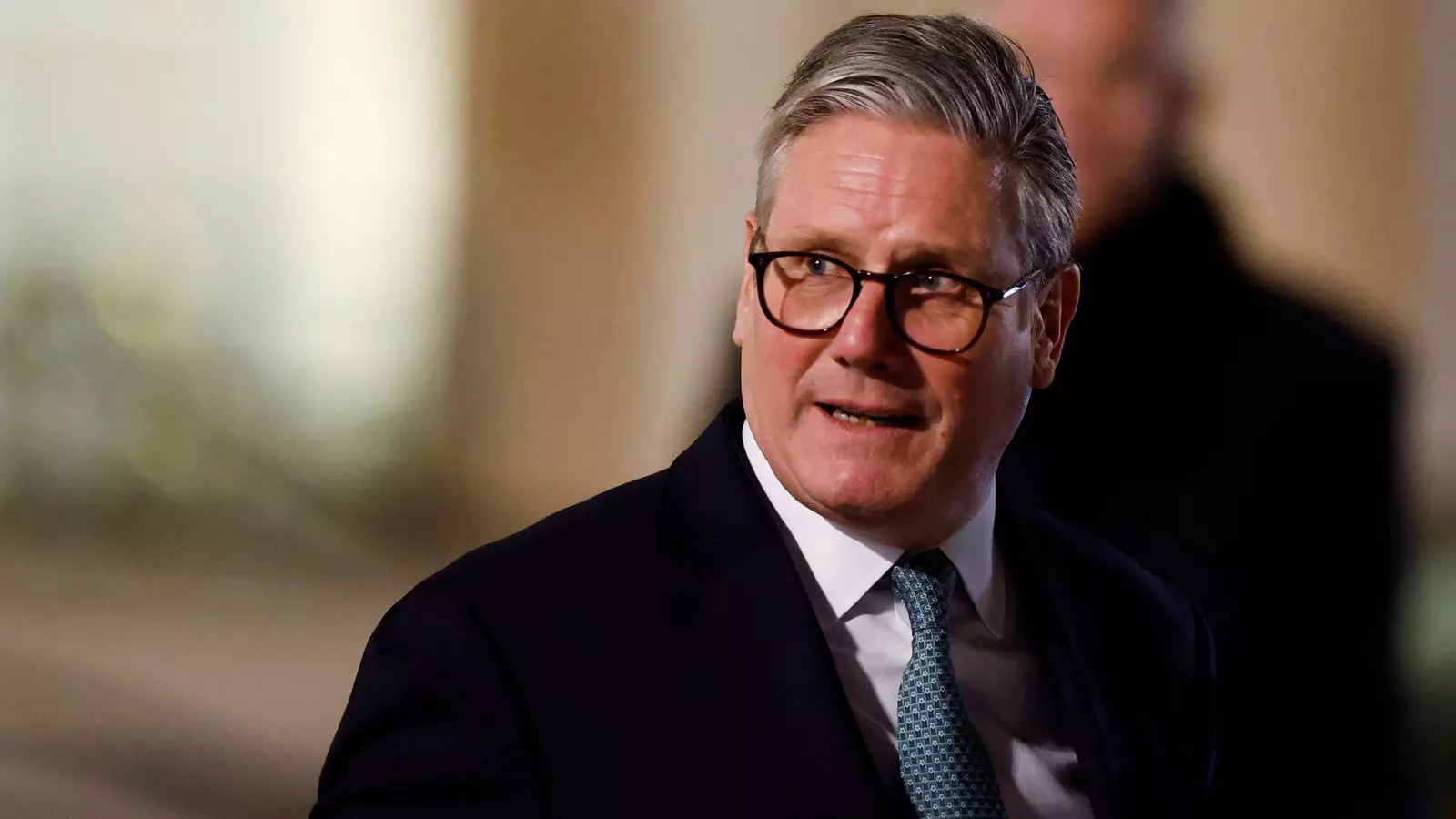As global political dynamics shift, the urgency surrounding the conflict in Ukraine has reached critical levels. The ongoing war has drawn the attention of leaders worldwide who recognize the necessity of a robust and lasting peace. Sir Keir Starmer, the leader of the UK Labour Party, has pressed the point that any achieving peace without securing essential safeguards against future aggression would only propagate instability. His recent comments aimed at former President Donald Trump underscore a crucial point: the need for the United States’ active participation in delivering a comprehensive security guarantee for Ukraine.
In a recent article, Starmer articulated his view that Ukraine deserves a central role in discussions about its future amidst the tumultuous negotiations. His insistence that “a good peace can only be won through strength” not only touches on the philosophical aspects of international relations but highlights a practical approach to contemporary geopolitics. His appeal for Donald Trump to support Ukraine with security guarantees emphasizes the extensive implications of a fractured approach to peace, where the absence of solid commitments could lead to renewed hostilities.
Furthermore, Starmer’s emphasis on Ukraine having a definitive voice in negotiations reflects a growing recognition among Western leaders that ignoring the aspirations and conditions of affected nations can lead to disastrous consequences. This line of thought is essential, particularly when considering the historical context of peace agreements that have sidelined key stakeholders, often resulting in fractured peace.
Starmer’s forewarning against a “bad peace deal” resonates with historical precedents. It reminds us of how treaties, born out of desperation for the cessation of hostilities, have often lacked the necessary frameworks to ensure long-term stability. The Martin Luther King Jr. quote, “Peace is not merely the absence of war,” fits aptly within this discourse, underscoring that genuine peace must be accompanied by security measures that deter potential aggressors.
Addressing concerns expressed by various political figures, including UK Defence Secretary John Healey, Starmer’s commentary resonates – “any negotiations about Ukraine cannot happen without Ukraine.” The argument illustrates the significance of collective voices in the resolution process. He also highlighted the importance of bolstering Ukraine’s defenses to combat future threats from Russia, reinforcing the concept that peace must be safeguarded with tangible actions, including international support for military capabilities.
As discussions regarding the ongoing war continue, the relationship between the United States and European allies has come under scrutiny. With Mr. Trump’s recent derogatory comments regarding Ukraine’s leadership, the potential for further strain on these already fragile relations raises critical questions about the future of NATO and collective defense. Any hesitance from American leadership might embolden adversarial states, further destabilizing the region.
Starmer’s ongoing call for increased UK defense spending to reach 2.5% of GDP signals a broader understanding that national security is intertwined with international stability. Pledging support not only in rhetoric but through fiscal responsibility enhances the UK’s standing as a reliable ally. The need for investment in defense extends beyond mere numbers; it is a reflection of commitment to collective security frameworks, particularly as Europe faces shared threats.
The pathway to a lasting resolution in Ukraine relies on unwavering commitment from national leaders and collaborative strategies that ensure future security. Sir Keir Starmer’s insightful contributions to the discourse surrounding the Ukraine crisis offer a crucial perspective on the importance of fortifying political and military alliances. Without active engagement and clear promises of support, the danger of a temporary respite that fails to address underlying tensions remains a foreboding reality. Political leaders must not only be vocal advocates for peace but must also guarantee its sustainability through comprehensive security frameworks. Only through a collective commitment to strength and solidarity can lasting peace emerge in Ukraine and set a precedent for other global conflicts.

